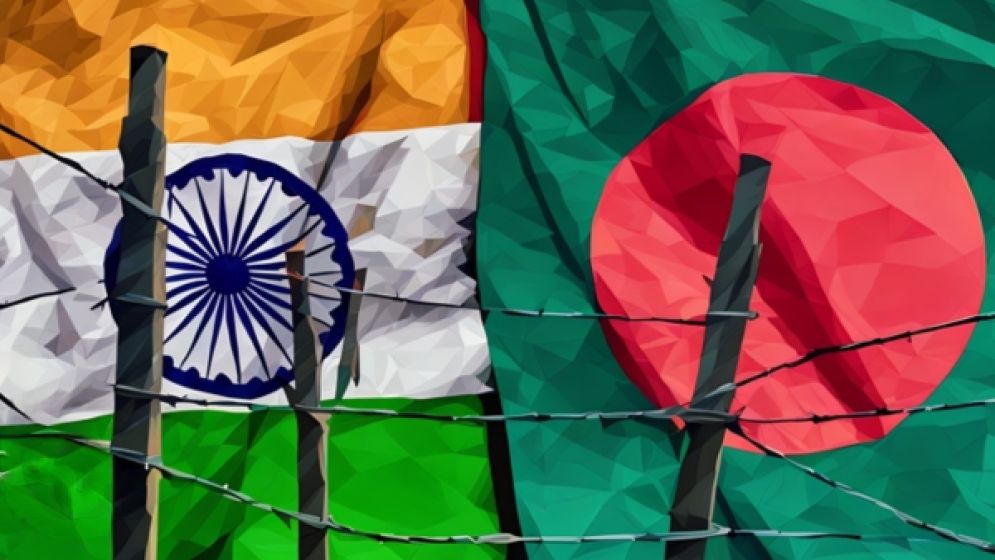Why Dhaka should issue a travel alert for Bangladeshis in India and recall its consulate staff immediately

The attack on the Bangladesh Assistant High Commission in Agartala, Tripura, marks a troubling chapter in the evolving dynamics of India-Bangladesh relations.
Amidst a growing wave of anti-Bangladesh sentiment in parts of India, the storming of a diplomatic mission—a blatant violation of the Vienna Convention—raises serious concerns about the safety of Bangladeshi citizens and diplomatic personnel in the neighboring country.
The incident, reportedly fueled by tensions surrounding incidents involving the Hindu community in Bangladesh, escalated to a level that challenges the fundamental principles of international diplomacy.
The Vienna Convention on Diplomatic Relations, 1961, explicitly mandates host nations to safeguard the inviolability of foreign missions, making the events in Agartala deeply troubling.
In a strongly worded statement, Bangladesh’s Foreign Ministry condemned the attack, expressing its "deep resentment" over the actions of the protesters, identified as members of the Hindu Sangharsh Samity of Agartala.
The ministry rightly highlighted the breach of diplomatic protections enshrined in international law, calling for accountability and immediate remedial measures.
The Indian Ministry of External Affairs has also acknowledged the breach, describing the incident as "deeply regrettable" and reiterating that diplomatic properties must not be targeted under any circumstances.
However, such assurances, though welcome, must translate into tangible actions to restore trust and prevent further escalations.
Dhaka must prioritize the safety of its citizens and diplomatic staff, while New Delhi must act decisively to uphold its responsibilities as a host country.

Why is the safety of Bangladeshi
citizens in concern?
However, there is no doubt that with tensions escalating, the safety of Bangladeshis in India is increasingly jeopardized.
Observers are urging the Bangladeshi government to issue travel advisories for its citizens in India and consider recalling consulate staff until their safety can be assured.
Anti-Bangladesh sentiment in India has intensified, exacerbated by statements from prominent political figures.
West Bengal Chief Minister Mamata Banerjee has called for the United Nations to deploy peacekeepers in Bangladesh over concerns regarding the treatment of Hindus.
While the protection of religious minorities is a valid concern, such remarks risk heightening tensions and inciting hostility toward Bangladeshis in India.
When echoed by influential voices, these statements create a volatile climate, increasing threats to both diplomatic missions and Bangladeshi communities.
Simultaneously, Indian Minister for External Affairs S. Jaishankar has urged Bangladesh to take stronger measures to safeguard its Hindu minorities, emphasizing the need for greater accountability.
While protecting all citizens is a fundamental responsibility of any government, framing these issues as political flashpoints risks further straining Indo-Bangladeshi relations, particularly when one side perceives the other as falling short in addressing the concerns.
The contrasting narratives—Banerjee’s call for international intervention and Jaishankar’s emphasis on Bangladesh’s internal governance—have deepened divisions, escalating tensions and placing Bangladeshis in India at increased risk.

The historical precedent of
diplomatic protection
History shows that nations facing threats to their citizens and diplomats abroad often resort to decisive actions. In 1999, China recalled its diplomats and suspended operations in Serbia after NATO bombed its embassy in Belgrade.
Similarly, in 2021, Pakistan withdrew its consular staff from France amid violent protests targeting its mission.
These measures underscored the principle that the safety of diplomatic personnel is non-negotiable and highlighted host nations’ responsibilities under international law.
Bangladesh should follow these precedents. Recalling consular staff until India provides firm assurances of their safety would send a clear message about the seriousness of the situation.
Recent incidents, such as the attack on the Bangladeshi Assistant High Commission in Agartala, demonstrate the need for Dhaka to take stronger actions to protect its citizens and diplomatic staff, especially in the absence of a robust response from India.
The historic bond between India and Bangladesh, rooted in India’s pivotal role in the 1971 Liberation War, has been a cornerstone of their relationship.
However, recent events have tested this partnership, bringing new challenges to the forefront. For Bangladesh, the safety of its citizens and the security of its diplomatic missions must remain the highest priority.
India’s government must acknowledge that failing to protect Bangladeshi citizens and diplomatic missions risks dangerous escalation.
Reciprocal protection of missions and citizens is a fundamental principle of international relations, and Dhaka is well within its rights to demand these assurances.
To underscore the seriousness of these threats, Bangladesh should consider issuing a travel alert for its citizens and recalling consular staff until adequate safety measures are in place.
In diplomacy, firmness and decisive action often serve as the foundation for enduring respect and cooperation.
By prioritizing the protection of its citizens and personnel, Bangladesh can send a clear message that their safety is non-negotiable.
Taking swift, strong action now will not only safeguard its people but also reaffirm its commitment to upholding international norms and fostering a balanced, respectful relationship with India.
—
Adil Mahmood is a former journalist

